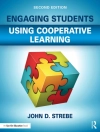Bringing together contributions from anthropology, sociology, religious studies, and philosophy, along with ethnographic case studies from diverse settings, this volume explores how different disciplinary perspectives on the good might engage with and enrich each other. The chapters examine how people realize the good in social life, exploring how ethics and values relate to forms of suffering, power and inequality, and, in doing so, demonstrate how focusing on the good enhances social theory. This is the first interdisciplinary engagement with what it means to study the good as a fundamental aspect of social life.
Mục lục
Acknowledgements
Introduction: The Good between Philosophy and Social Theory: An Introduction
David Henig and Anna Strhan
Part I: Theoretical Perspectives
Chapter 1. Where is the Good in the World?
Joel Robbins
Chapter 2. Nowhere and Everywhere
Michael Lambek
Chapter 3. Between Durkheim and Bauman: A Relational Sociology of Morality in Practice
Owen Abbott
Chapter 4. For the Agony of ‘the Good’ and of the Moral Courage to Do It
Iain Wilkinson
Chapter 5. Thinking Time, Ethics and Generations: An Auto-Ethnographic Essay on the Good between Philosophy and Social Theory
Victor Jeleniewski Seidler
Part I: Commentary
Steven Lukes
Part II:Approaching the Good in Everyday Life
Chapter 6. ‘To See a Sinner Repent is a Joyful Thing’: Moral Cultures and the Sexual Abuse of Children in the Christian Church
Gordon Lynch
Chapter 7. Making the Good Corporate Citizen: Corporate Social Responsibility and the Ethical Projects of Management Consultancy in Contemporary China
Kimberly Chong
Chapter 8. ‘God isn’t a Communist’: Conservative Evangelicals, Money and Morality in London
Anna Strhan
Chapter 9. Doing Good: Cultivating Children’s Ethical Sensibilities in School Assemblies
Rachael Shillitoe
Chapter 10. Locating an Elusive Ethics: Surface and Depth in a Jewish Ethnography
Ruth Sheldon
Chapter 11. Radical Hope as a Practice of Possibilities: On the Fragility of Goodness and Struggles for Justice in Postwar Bosnia-Herzegovina
David Henig
Part II: Commentary
Maeve Cooke
Index
Giới thiệu về tác giả
David Henig is Associate Professor of Cultural Anthropology at Utrecht University. He is the author of Remaking Muslim Lives: Everyday Islam in Postwar Bosnia and Herzegovina (Illinois UP, 2020) and the co-editor of Economies of Favour After Socialism (OUP, 2017).












